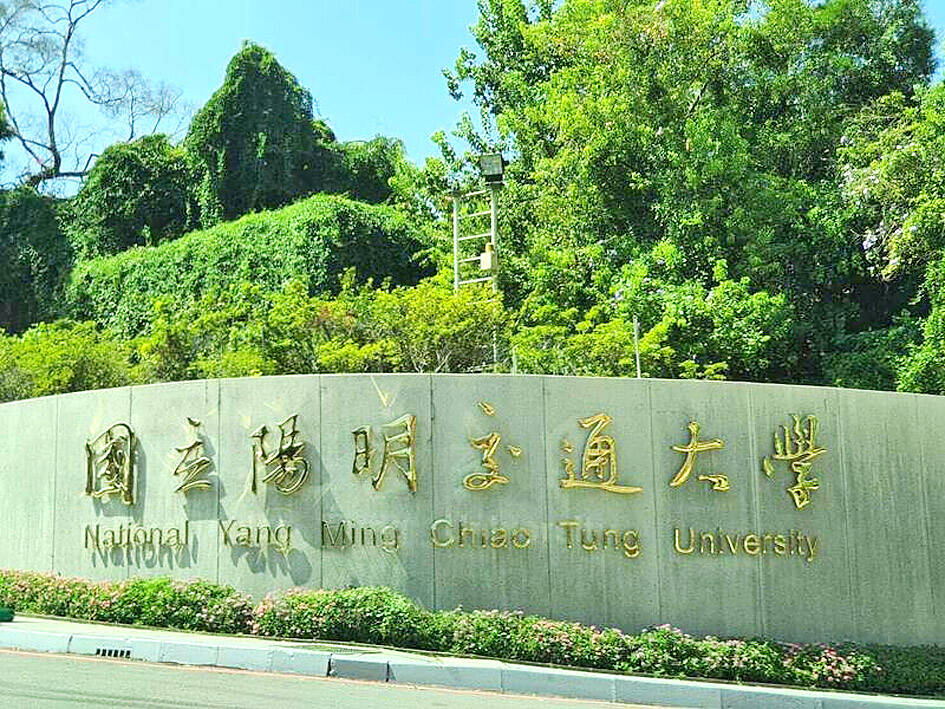While severe deterioration of oral health is closely linked to cognitive dysfunction, the correlation does not necessarily mean there is a causal link, a study led by a research team at National Yang Ming Chiao Tung University’s Department of Dentistry said.
More than 300,000 people in Taiwan have dementia, with 96 percent over the age of 65, Ministry of Health and Welfare data showed.
Dementia is an umbrella term for a variety of diseases, rather than an aging phenomenon, with Alzheimer’s a well-known form. In addition to memory loss, dementia can also affect cognitive functions, personality and behavior.

Photo: Taipei Times
“Oral-cognitive links” have been widely researched, but the associations between deteriorating oral health and the risks of dementia remain unclear, the study said.
A systematic review of 28 research papers on oral-cognitive links published in the past five years showed that most focused on the relationship that periodontal diseases and the oral microbiome have with Alzheimer’s disease, it said.
Abundant evidence supports the idea that serious oral health problems, such as severe periodontal disease and extensive tooth loss, are strongly correlated with cognitive dysfunction, it said.
However, Lin Chia-shu (林嘉澍), a professor in the department, said that there are wide discrepancies in the relationship between oral health and cognitive dysfunction, adding that the strong correlation does not necessarily mean causation.
For example, while tooth loss is related to dementia, wearing dentures does not necessarily prevent dementia and chewing more does not necessarily enhance cognitive function, Lin said.
The oral-cognitive links do not support the conclusion that regular teeth brushing can prevent dementia, he said, adding that further research would be required to establish such a claim.
No strong evidence has been presented to show that good oral health can prevent early-onset or mild dementia, he said.
The causal relationship might even be the reverse, he said.
As dementia progresses, people might develop serious oral problems as they lose the ability to care for themselves, including brushing their teeth and rinsing their mouth, Lin said.
Many people misunderstand the relationship between oral health and cognitive function, he said, adding that more attention should be paid to the issue while taking care of elderly people.
The study was published in this month’s edition of the Ageing Research Reviews journal.
Collaborators on the study include physician Chen Ta-chung (陳大中) in Taipei Veterans General Hospital’s Department of Stomatology; Fuh Jong-ling (傅中玲), director of National Yang Ming Chiao Tung University’s Department of Neurology; the Karolinska Institute in Stockholm; and the University of Amsterdam’s Academic Center for Dentistry.

Eight restaurants in Taiwan yesterday secured a one-star rating from the Michelin Guide Taiwan for the first time, while three one-star restaurants from last year’s edition were promoted to two stars. Forty-three restaurants were awarded one star this year, including 34 in Taipei, five in Taichung and four in Kaohsiung. Hosu (好嶼), Chuan Ya (川雅), Sushi Kajin (鮨嘉仁), aMaze (心宴), La Vie by Thomas Buhner, Yuan Yi (元一) and Frassi in Taipei and Front House (方蒔) in Kaohsiung received a one-star rating for the first time. Hosu is known for innovative Taiwanese dishes, while Chuan Ya serves Sichuan cuisine and aMaze specializes

Taitung County is to launch charter flights to Malaysia at the end of this year, after setting up flights to Vietnam and Thailand, the Taitung County Government said yesterday. The new charter flight services, provided by low-cost carrier Batik Air Malaysia, would be part of five-day tour packages for visits to Taitung County or Malaysia. The Batik Air charter flight, with about 200 seats, would take Malaysian tourists to Taitung on Dec. 30 and then at 12:35pm return to Kuala Lumpur with Taiwanese tourists. Another charter flight would bring the Taiwanese home on Jan. 3 next year, arriving at 5:30pm, before taking the

Taiwan High Speed Rail Corp. (THSRC) plans to ease strained capacity during peak hours by introducing new fare rules restricting passengers traveling without reserved seats in 2026, company Chairman Shih Che (史哲) said Wednesday. THSRC needs to tackle its capacity issue because there have been several occasions where passengers holding tickets with reserved seats did not make it onto their train in stations packed with individuals traveling without a reserved seat, Shih told reporters in a joint interview in Taipei. Non-reserved seats allow travelers maximum flexibility, but it has led to issues relating to quality of service and safety concerns, especially during

An exhibition celebrating Taiwan and Japan’s comic culture opened on Saturday in Taichung, featuring a section that explores Taiwanese reproductions of Japanese comics from when martial law limited Japanese representation. “A Century of Manga Culture: An Encounter of Taiwan and Japan’s Youth” held its Taiwan opening ceremony at Taichung’s National Taiwan Museum of Comics after an initial one-month run in Japan’s Kyoto International Manga Museum between May 24 and June 24. Much like the Kyoto exhibition, the show mainly celebrates the comic connection between Taiwan and Japan through late Taiwanese comic book